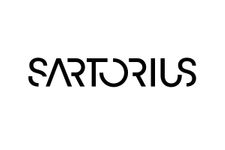The CAR-T Revolution: Developing T Cells into Cancer Assassins
Cancer has long been a formidable foe, but recent breakthroughs in immunotherapy have brought new hope to patients. Among these advances, chimeric antigen receptor T-cell therapy (CAR-T) stands out as a revolutionary approach offering great promise. We asked one of our own experts about the main challenges in developing and manufacturing CAR-T therapies.
What is CAR-T Cell Technology?
CAR-T cell therapy involves genetically modifying a patient's own T cells to equip them with chimeric antigen receptors (CARs) on their surface. After expansion and activation in the lab, the modified CAR-T cells are infused back into the patient's bloodstream. These CARs are designed to recognize specific antigens expressed on cancer cells and destroy them with precision.
In this interview with Jalil Hakimi, Product Manager at Sartorius, we discussed the main challenges of CAR-T therapy development and how we can work to overcome them. Jalil Hakimi has more than 25 years of experience in clinical immunology, cancer genetics and vaccine research and development.
How did the CAR-T field get its start?
“In July 1997, when I had the privilege to work at Ontario Cancer Institute (Canada), I learned that the lab beside us belonged to Tak Mak, a noble Canadian scientist who cloned the T-cell receptor (TCR) for the first time in 1983. His discovery opened the door of opportunities for TCR editing by genetic engineers. I remember how excited scientists were about this.
Initially, the idea was to generate CAR-T therapeutics for HIV-infected patients, but a few years later Carl June at the University of Pennsylvania (USA), the father of CAR-T, pioneered the concept further and teamed up with Bruce Levine to start the first CAR-T clinical trials for children with acute lymphoblastic leukemia.”
What’s been the impact of CAR-T since you began working in this field?
“At present, we have seven FDA-approved CAR-T therapies and I can imagine the numbers will rapidly grow due to the continuing technological advancements and support from the regulatory bodies. Patients with CD19 lymphoma get up to 97% cancer-free results thanks to CAR-T therapy. This is an amazing advancement.”
What is the greatest technological breakthrough in CAR-T?
“There are many, but I can name a few. In thinking of the CART-T workflow, lentivirus is still the standard transduction method. For advanced therapies, and particularly cell and gene therapies in clinical phases, regulatory bodies want to get rid of viral-based technologies. Here, alternative non-viral techniques such as mRNA, CRISPR and enzymes are showing promise. Scale-up of cell proliferation in cGMP is another important bottleneck where new bioreactors are making a difference.”
What factors hold the greatest influence on finished product efficacy?
“To generate powerful T-cells, you need to engineer the right receptor, use right T-cell culture media for proliferation and use the right growth and activation factors at the right concentration. You also need advanced tools that can help you quickly screen cells for the right biological and functional attributes. Those are the pillars of a robust protocol, from small scale to large scale. Consistency is a big factor.”
Where are the greatest challenges in the development and manufacture of CAR-T-cell therapies?
“The cost is the most challenging part. At an average cost of US$0.5 million, CAR-T treatment is inaccessible to many. We need to lower the cost of discovery and manufacturing to make treatment more affordable. The time to produce and upscale the cells is also lengthy; it takes weeks and months to produce enough therapeutic cells to transplant into the patient. For a cancer patient, each day they wait is one too many.”
How can we work to overcome these challenges?
“CAR-T manufacturers, in partnership with suppliers, are trying to come up with advanced tools to accelerate the process by implementing automation systems and GMP-grade bioreactors for mass production at each step. For autologous CAR-T therapy, since the cells are limited and it is considered a personalized therapy, it is very costly and time-consuming. Scientists are trying to generate a kind of universal cell therapy – allogeneic cell therapy – from sources other than primary cells, such as induced pluripotent stem cells or human pluripotent stem cells. These cells can grow faster and are more viable to overcome the challenges of cost and time.”
How do you see the CAR-T industry evolving in the next 5–10 years?
“The market for CAR-T is growing with more CAR-T therapies approved not only by the US FDA, but also by other global players. Regulatory approval easiness is a key driver. China is moving quickly towards generating so-called off the shelf allogeneic CAR-T therapies due to its public health demands. As of today, over 50% of global clinical CAR-T trials are happening in China!
The demand for safer options is also shifting the CAR-T paradigm to applications beyond only T-cells to reduce toxicity and side effects. Scientists are considering generating other engineered cells, such as CAR-natural killer cells, macrophages and CAR-TCR cell therapies, with the goal of preventing the cytokine storm, or the graft-versus-host phenomena. It will be exciting to see this field evolve and expand its applications to other unmet medical disorders, such as autoimmune diseases.”
Keep exploring! Find all the right solutions to accelerate your CAR-T workflows from R&D to process development and manufacturing, safely and cost effectively.
Related Content
-
MAY 07, 2024Is It Anti-RNP or Anti-Sm/RNP?
-
MAY 08, 2024Expand your Multiomic Capabilities with RNAscope™
- See More
-
APR 30, 2024Immuno-Oncology Virtual Event Series 2024
-
MAY 07, 20243rd International Biosecurity Virtual Symposium
-
MAY 23, 2024For the Love of Digital PCR 2024
- See More



















































